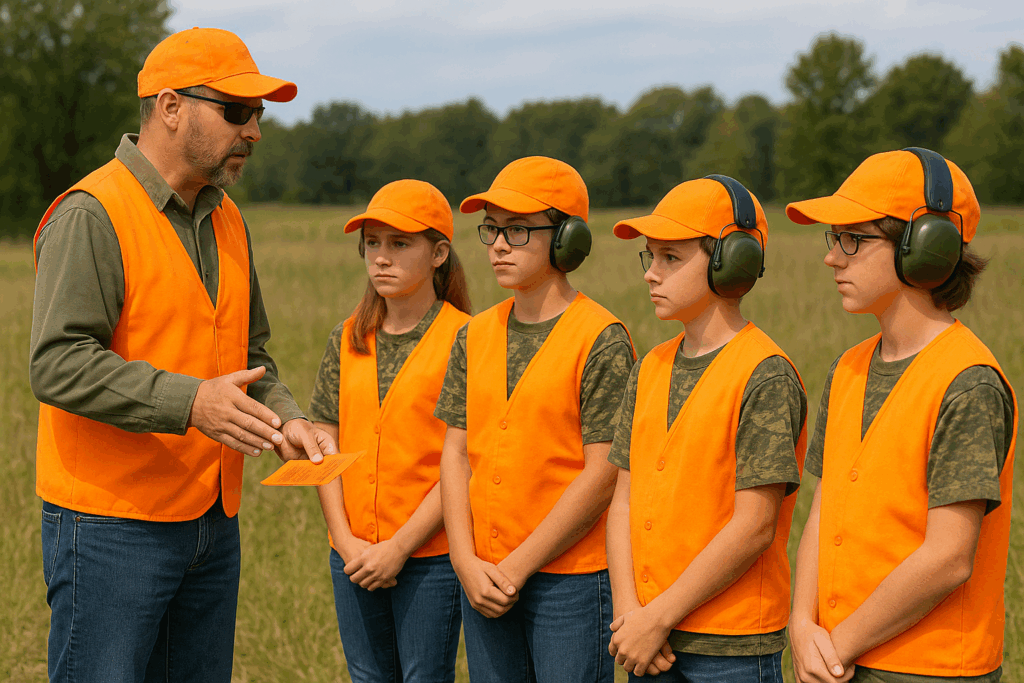Take an Official State-Approved Hunter Safety Course

Hunter education is an essential step for anyone interested in hunting safely and responsibly in Maine. Understanding the age requirements for taking hunter education courses is crucial for young aspiring hunters and their families. This article will provide detailed information about the minimum age to enroll in hunter education in Maine, the rules for youth hunters, and how to get started with hunter education in the state.
In Maine, students must be at least 10 years old to take hunter education, and those under 16 who attend must be accompanied by a parent or guardian; courses are offered in online, homestudy, and traditional formats. If a student ages 10–15 completes the online option, an in-person skills and exam session is required for certification, while students 16 and older may complete the course fully online. Families should gauge readiness and check specific class listings for any additional instructions.
In Maine, hunter education is generally required for anyone who wants to purchase a hunting license and hunt within the state. This requirement applies to both residents and non-residents, ensuring that all hunters have a basic understanding of hunting safety and regulations before they begin hunting activities.
Specifically, anyone applying for a firearms hunting license must have completed a state-approved hunter education course unless they held a license since 1976. This means that if you have never held a license or your license was issued before 1976, you need to complete the course.
For those looking to find a state-approved hunter safety course, please visit Maine’s hunter education page or Recademics for links to approved courses.
Does Maine Offer Online Hunter Education for Youth?
Maine does offer an online hunter education course option, which is particularly convenient for youth and their families. The online course covers all the required topics, including firearm safety, hunting ethics, wildlife identification, and state hunting regulations.
However, completing the online portion alone is not sufficient to receive certification. Maine requires all students under 16 who complete the online course to attend a mandatory in-person Skills and Exam Day. This practical component allows students to demonstrate safe firearm handling and other essential hunting skills under the supervision of certified instructors.
The combination of online learning and in-person field days ensures that youth hunters receive comprehensive training that prepares them for real-world hunting scenarios while accommodating different learning preferences and schedules.
Enrolling in a youth hunter education course in Maine is a straightforward process. First, parents or guardians should visit the official Maine Department of Inland Fisheries and Wildlife website or trusted course providers such as Recademics to find available courses.
Next, select a course that fits your schedule and preferred format—either fully in-person, online with a field day, or hybrid options. Registration typically requires providing basic information about the student and paying any applicable course fees.
For youth participants, parental consent is usually required during registration. It is advisable to review all course requirements and materials ahead of time to ensure the student is prepared for both the classroom and field components.
Once registered, students should complete any pre-course assignments or online modules before attending the in-person sessions. Successful completion of the course results in a hunter education certificate, which is necessary for purchasing hunting licenses in Maine.
While a parent or guardian does not always need to be physically present during every part of the hunter education course, their involvement is important, especially for younger students. For in-person field days and test sessions, some instructors or course providers may require a parent or guardian to accompany the youth participant or at least be available nearby.
Parental presence helps ensure that minors have the necessary support and supervision during practical exercises involving firearms and outdoor activities. Additionally, parents or guardians often need to provide consent and complete registration paperwork on behalf of their children.
It is recommended that parents communicate with the course instructor or provider ahead of time to understand any specific attendance or supervision policies. This helps ensure a smooth and safe learning experience for youth hunters.
Once a hunter education course is successfully completed in Maine, the certificate issued is valid for life. This means that hunters do not need to retake the course or renew their certification to continue purchasing hunting licenses in the state.
Moreover, Maine’s hunter education certificate is recognized by many other states through reciprocal agreements. This allows hunters who have completed the course in Maine to hunt legally in other states without needing to complete additional hunter education courses, provided those states honor Maine’s certification.
This lifetime validity and reciprocity make hunter education a valuable investment for anyone interested in hunting, ensuring long-term compliance with safety and legal requirements across state lines.